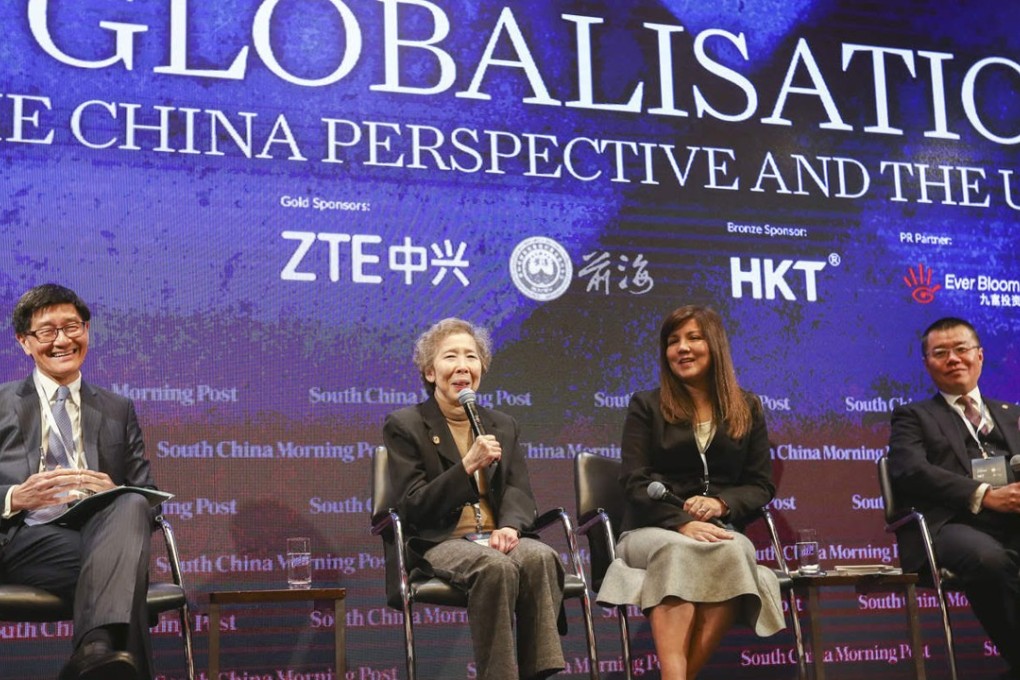‘Hong Kong shouldn’t just connect mainland to world but shape thinking on Belt and Road plan’, conference hears
Speakers at the South China Morning Post’s annual China Conference urge Hong Kong to use its strengths to capitalise on opportunities presented by China’s development.

Witman Hung, whose role is to help Hong Kong businesses and start-ups set up in the zone tipped to be a financial and commercial hub, said at the South China Morning Post’s annual China Conference: “If you are only a connector, once you connect [the partners], you are out of job. You need to do something more.”
Thus, the city should – aside from being a centre for talent and ideas – see how it could shape thinking on the US$900 billion plan proposed by President Xi Jinping in 2013, Hung said.
If you are only a connector, once you connect [the partners], you are out of job. You need do something more.
“All [Belt and Road] narratives so far have come from Beijing … but [the initiative] was supposed to be the new globalisation … What we are lacking here is an international narrative,” he said at the full-day conference for businessmen, policymakers and investors to discuss the topic Globalisation: The China Perspective and the US Factor.
One way to rectify this would be to get Chinese and foreign think tanks to set up in the city.
“Hong Kong can play a very good role … to encourage free flow of ideas and let [international talents] take the ownership – let non-Chinese think tanks promote the Belt and Road Initiative in their own way because it [will then] become their idea,” he said.
The Belt and Road Initiative – described as a modern-day Silk Road with maritime and land networks connecting China with Asia, Africa and Europe to boost trade and economic growth – has been framed in some countries as Beijing’s grand plan for geopolitical dominance.
In Hong Kong, ranked the world’s freest economy, the former and current chief executives have been focusing on how the city can secure a formal role in the initiative, saying it can be a “super-connector” and use its advantages in professional services and finance to link the mainland to the rest of the world.